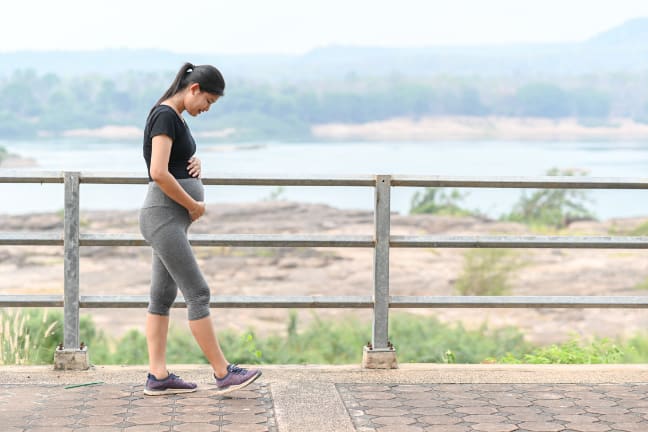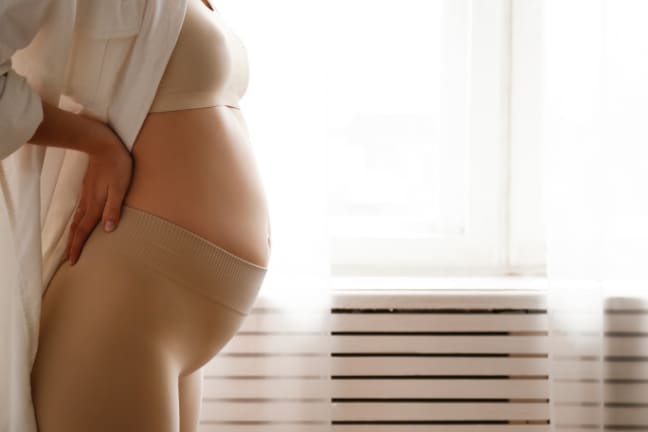Introduction
Your baby’s sense of smell is progressing, and their legs are now longer than their arms so more in proportion. Hopefully morning sickness is now a thing of the past and you should have more energy too as you’re in your second trimester. Make time to get some exercise in and ensure you are drinking plenty of water. Read more on what to expect at 15 weeks pregnant.
What happens at 15 weeks pregnant?
At 15 weeks pregnant your little bubba is about the size of a peach. Their body is even covered in a peachy fuzz called lanugo. Thankfully baby’s shape is less peach-like and more human-like. Their legs are now longer than their arms so baby’s looking more in proportion.
Baby’s sense of smell is progressing at 15 weeks pregnant as the thorax starts to rise and fall. They’re learning to inhale which is the beginning of their smelling function. Your baby won’t properly smell things until around seven months which is when the nervous system is more mature. And although their eyelids are still fused shut their eye structure has been developing since week eight and by now baby will be sensitive to light. If you shine a torch on your belly your baby may even turn away.
What happens to your body at 15 weeks pregnant?
You could be feeling pretty good in the second trimester. Any morning sickness and tiredness may have lifted so this is a good time to think about second trimester exercises. Swimming, pregnancy yoga, brisk walking or just staying on your feet more than usual will all build your strength for the birth and afterwards.
Added energy can often go hand in hand with a renewed sex drive - an even more enjoyable way to work out, perhaps? Of course, for some women it’s the last thing on their mind, and a decreased sex drive is perfectly normal too.
What to eat at 15 weeks pregnant?
Fingers crossed, morning sickness has eased off, so you’re probably feeling a lot hungrier – this is your body gearing up to provide nutrients for baby. It’s also around now at 15 weeks pregnant you’ll start to notice weight gain. Every pregnant woman gains weight differently so there are no official guidelines for how much weight you should gain. The most important thing is to drink lots of water and have a balanced, fibre-rich pregnancy diet, which will help keep constipation during pregnancy at bay and keep weight gain at a healthy level for you and your baby. Most women put on between 10kg (22lb) and 12.5kg (28lb) during their pregnancy, although this varies from woman to woman.
If you notice drastic or sudden weight gain during pregnancy, there is slim chance it could be an indicator of a serious condition called pre-eclampsia. It’s relatively uncommon and only affects 6% of pregnant women but it’s always worth checking with your doctor to rule it out.
What are the symptoms of 15 weeks pregnant?
Week 15 pregnancy symptoms can include itchy skin. Your pregnancy hormones can soften the fibres of your skin making it more prone to stretch marks, and it’s the stretching of the skin that causes the itch. You can try massaging some unscented oil or cream on your bump, thighs, and arms to soothe the itch.
Another pregnancy symptom at 15 weeks can be thrush. Thrush is a yeast infection which is quite common in pregnancy - as the hormones change, so can the bacteria in the vagina. This allows the fungus called candida, which causes the infection, to grow. Signs of thrush is a white lumpy discharge which can also be itchy and can cause stinging when you pee. Wearing loose cotton underwear can help prevent it and use unperfumed soaps or body wash. Thankfully it is easy to treat, just check with you doctor or midwife which thrush medicines are safe to use when pregnant.
What are screen tests in pregnancy?
Some mums might be offered extra optional pregnancy screening tests, the NHS provide information of what’s involved and to help you decide whether or not to have them.
You’ll also get the chance to go over all the options with your midwife or consultant.
SMA Careline®
Need expert advice or support 24/7?
We have a dedicated team of friendly experts with access to expert healthcare professionals such as registered dietitians and nutritionists to answer your questions.













